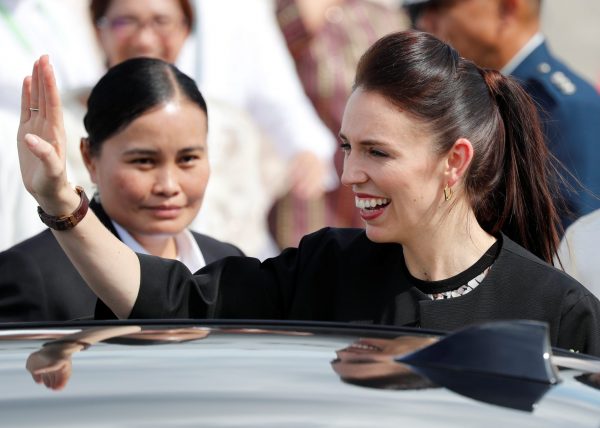For 30 years, New Zealand has sought higher living standards through an open economy. New Zealand trades with the world and places a special emphasis on the Asia Pacific region. The United States remains a significant market but New Zealand’s economic strategy necessarily focusses more on Asia.
Commentators worry about the divergence between New Zealand’s economic relationship with China and its security relationship with the United States. Because of the ANZUS break in the 1980s, the debate is much less intense in New Zealand than it is in Australia. There is even some sense that while the ANZUS breach was uncomfortable at the time, its long-term effects have proven beneficial.
New Zealand’s new Labour-led government was immediately faced upon election with how it should respond to efforts to create TPP-11 out of the ruins of the TPP. The choice was between ill-informed statements to the electorate and continuity with the policy analysis that had informed the previous government. The latter prevailed, which implies that continuity will be characteristic of policy choices in general.
The electoral mandate of the new government is hardly overwhelming. Labour won significantly fewer votes and seats than the National Party and assumed office because of the choice of the third-largest party, New Zealand First. New Zealand First holds the balance of power not because of a defective electoral system but because of the divided nature of the electorate. The mixed-member proportional representation electoral system (which elects a number of parliamentarians based on the proportion of the vote that their party received in a national vote separate from constituency contests) worked as intended, although it was constrained by the unwillingness of senior politicians to discipline minor parties by making a temporary ‘grand coalition’ a practicable option.
The new government has created an outpouring of optimism in the electorate about new policy directions. But this optimism is superficial even though reinforced by the pregnancy of the prime minister — there is an appeal in novelty that will soon face opposition to any specific change. That is especially true as electoral commitments come up against the constraints of reality, including constraints imposed by tensions between specific electoral commitments. Planting a million trees over the next 10 years will be the largest land change in New Zealand’s history and will therefore conflict with intentions to preserve the conservation estate as it stands today. Engaging foreign owners in the forestry industry will conflict with worries about foreign ownership. The abolition of national standards in schools will please teachers’ unions but will also make it more difficult to secure the promised improved student achievement.
One respect in which the new government does signal change is in the age of politicians. Former prime minister Bill English is in his 50s and is therefore hardly old, but Prime Minister Jacinda Ardern is in her 30s. There is a significant group of similarly young parliamentarians. The composition of the Parliament has changed in recent decades from parliamentarians who retired from successful careers before entering the Parliament to those who have never done anything but politics. This change gives an increase in energy but a decrease in the ability to distinguish between choosing feasible options and promoting pet projects.
The last recognised generational change was in the 1980s. The government that came into office was determined to change New Zealand’s economic direction and adjusted social policy accordingly. It was characterised by a thirst for first-principle analysis and by a determination to manage social change so as to maintain what was important while facilitating progress. It eventually failed to preserve itself, but it changed New Zealand.
The new Labour-led government is unlikely to follow suit. Modest adjustments and different rhetoric are much more likely. There is plenty of social change to be managed: technology will change the nature of work, and workers will need lifetime facilitation in order for them to adjust to change. Employees must accept portfolios of tasks rather than assured employment for one role at one firm. Rhetoric about the precariat or the usual discussion of science, technology, engineering and mathematics skills will not suffice to address these issues.
Reconsidering the role of immigration (specifically in terms of the number of immigrants) and relying on analysis rather than employers’ self-interest usually gives way to nonsense about New Zealanders being unwilling to work on dairy farms, in horticulture or in personal care industries. Policymakers do not get to the core issue of simultaneously reducing the volume of immigration while maintaining its diversity.
In New Zealand as elsewhere, words are mistaken for ideas and rhetoric for policy analysis. A political realignment may be under way but it lacks any sense of direction.
Gary Hawke is a Fellow of the Royal Society of New Zealand and a member of the Academic Advisory Council of the Economic Research Institute for ASEAN and East Asia.
This article is part of an EAF special feature series on 2017 in review and the year ahead.

